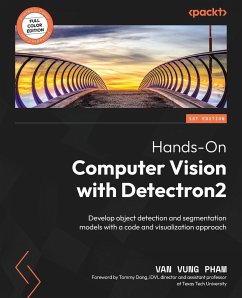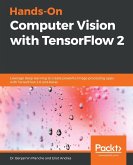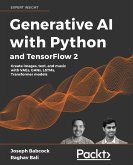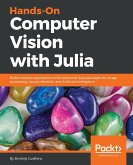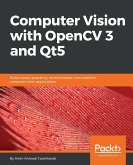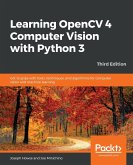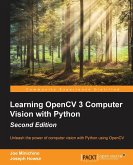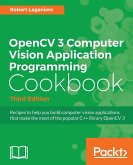Explore Detectron2 using cutting-edge models and learn all about implementing future computer vision applications in custom domains Purchase of the print or Kindle book includes a free PDF eBook Key Features: - Learn how to tackle common computer vision tasks in modern businesses with Detectron2 - Leverage Detectron2 performance tuning techniques to control the model's finest details - Deploy Detectron2 models into production and develop Detectron2 models for mobile devices Book Description: Computer vision is a crucial component of many modern businesses, including automobiles, robotics, and manufacturing, and its market is growing rapidly. This book helps you explore Detectron2, Facebook's next-gen library providing cutting-edge detection and segmentation algorithms. It's used in research and practical projects at Facebook to support computer vision tasks, and its models can be exported to TorchScript or ONNX for deployment. The book provides you with step-by-step guidance on using existing models in Detectron2 for computer vision tasks (object detection, instance segmentation, key-point detection, semantic detection, and panoptic segmentation). You'll get to grips with the theories and visualizations of Detectron2's architecture and learn how each module in Detectron2 works. As you advance, you'll build your practical skills by working on two real-life projects (preparing data, training models, fine-tuning models, and deployments) for object detection and instance segmentation tasks using Detectron2. Finally, you'll deploy Detectron2 models into production and develop Detectron2 applications for mobile devices. By the end of this deep learning book, you'll have gained sound theoretical knowledge and useful hands-on skills to help you solve advanced computer vision tasks using Detectron2. What You Will Learn: - Build computer vision applications using existing models in Detectron2 - Grasp the concepts underlying Detectron2's architecture and components - Develop real-life projects for object detection and object segmentation using Detectron2 - Improve model accuracy using Detectron2's performance-tuning techniques - Deploy Detectron2 models into server environments with ease - Develop and deploy Detectron2 models into browser and mobile environments Who this book is for: If you are a deep learning application developer, researcher, or software developer with some prior knowledge about deep learning, this book is for you to get started and develop deep learning models for computer vision applications. Even if you are an expert in computer vision and curious about the features of Detectron2, or you would like to learn some cutting-edge deep learning design patterns, you will find this book helpful. Some HTML, Android, and C++ programming skills are advantageous if you want to deploy computer vision applications using these platforms. Table of Contents - An Introduction to Detectron2 and Computer Vision Tasks - Developing Computer Vision Applications Using Existing Detectron2 Models - Data Preparation for Object Detection Applications - The Architecture of the Object Detection Model in Detectron2 - Training Custom Object Detection Models - Inspecting Training Results and Fine-Tuning Detectron2's Solver - Fine-Tuning Object Detection Models - Image Data Augmentation Techniques - Applying Train-Time and Test-Time Image Augmentations - Training Instance Segmentation Models - Fine-Tuning Instance Segmentation Models - Deploying Detectron2 Models into Server Environments - Deploying Detectron2 models into Browsers and Mobile Environments
Hinweis: Dieser Artikel kann nur an eine deutsche Lieferadresse ausgeliefert werden.
Hinweis: Dieser Artikel kann nur an eine deutsche Lieferadresse ausgeliefert werden.

